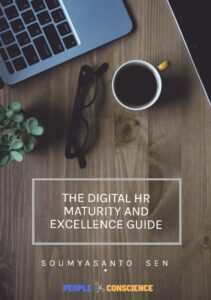Recently, the Google Cloud Jobs API team unveiled Google for Jobs. By aggregating similar job titles into groups of jobs, job seekers can search and discover relevant jobs in a centralized location, rather than visiting multiple job boards and company career pages. Google says recruiters can expect “more, motivated applicants.”
Google’s entrance to the job search space, brings much-needed innovation. In a recent blog post, Google for Jobs: Disrupting the Recruiting Market?, Josh Bersin, details today’s frustrating landscape:
“The bottom line is a lot of headaches and inefficiency in the job market: the average open position receives more than 150 resumes, more than 45% of candidates never hear anything back from the employer, 83% of candidates rate their job search experience poor…”
With Google doing what they do best — organizing information and making it searchable and discoverable, the job search experience will improve. This further catalyzes an already budding, industry-wide movement towards improved candidate engagement.
When coupled with the increasing pervasiveness of “Quick Apply” options, Google’s enhanced job discoverability has officially knocked down all barriers to applying. Recruiters will experience a massive increase in inbound applicants.
As applicant pools grow, recruiters’ needs will shift from, “How do I get applicants to apply to my jobs?” to “How do I engage this new and much larger applicant pool?” The application floodgates have opened and recruiters, already stretched thin, lack the bandwidth to engage.
Here’s where chatbots come in.

Source: TechCrunch
Chatbots engage on candidates’ schedules.
Most applicants and recruiters have tight schedules, which makes it hard to find time to connect. With narrow windows of time to communicate, recruiters and applicants often miss each other. Unlike recruiters, chatbots are not limited by time. Rather, they engage with applicants at their convenience.
Chatbots are patient and listen attentively.
In order to move through the ever-growing queue of applicants, recruiters often rush through the most important aspect of their job: building relationships with candidates. Recruiters strive to listen to candidates, to empathize with their situation and to provide thoughtful feedback and context about the job. Unfortunately, buckling under the pressure to quickly engage, screen and assess, recruiters, lack the bandwidth to provide such a thoughtful experience. Chatbots, on the other hand, can be patient when recruiters cannot. Chatbots fulfill the outcome recruiters desire but are too overburdened to achieve themselves.
Chatbots allow recruiters to make data-driven decisions.
Lastly, similar to “Quick Apply” applications, rushed interviews reduce the data available to recruiters. Short, distracted phone screens provide an incomplete picture of a candidate. Not only does this force recruiters to make decisions based on data they know is incomplete, but candidates are left feeling misrepresented. Chatbots patiently listen to applicants in order to gather a complete picture of their experiences and skills as they relate to the role in question — effectively replicating the outcome recruiters seek in the initial phone screen, but with more holistic data.
Candidates deserve a hiring experience that is un-rushed, attentive and personable. Recruiters want this too, but lack the bandwidth to provide such engagement at scale. The introduction of Google for Jobs further compounds this dilemma.
🙋 ️Enter Wendy.
Wendy is an Applicant Experience Chatbot. She automates the experience recruiters wish they could provide for every applicant. She does not seek to replicate the candidate-recruiter relationship itself. Rather, she replicates, at scale, the outcome a conversation between candidate and recruiter achieves. She aims to engage candidates in an attentive, empathetic way that makes them comfortable enough to open up about their professional accomplishments and career goals — just as a recruiter seeks to do.
This article has been written by Wade & Wendy, and originally published in The HR Tech Weekly® blog.


